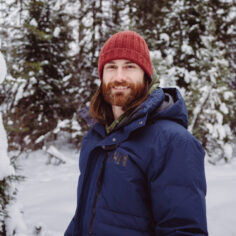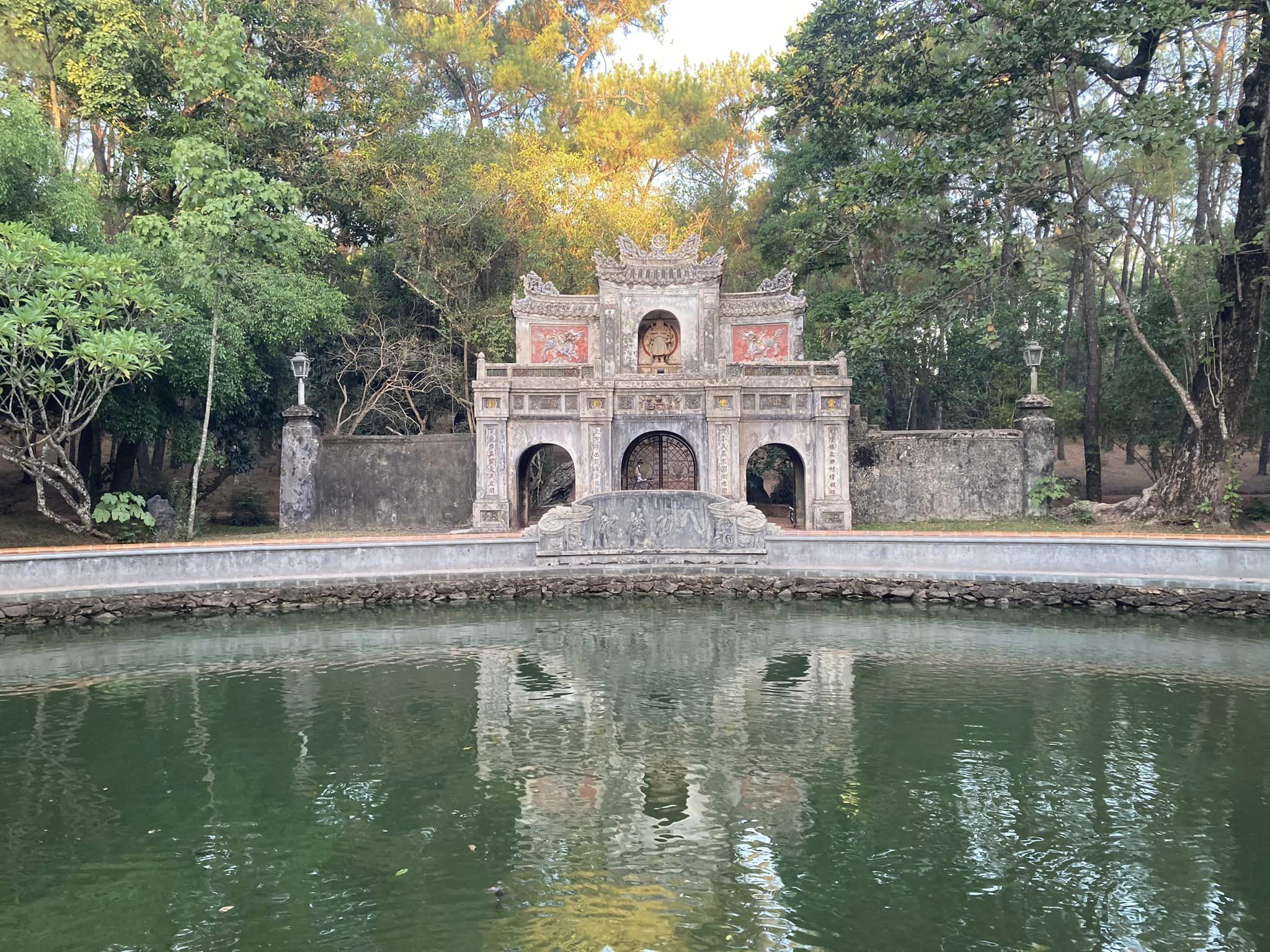By Nik Novak on
A lay friend shares about his journey toward sobriety and becoming a peacemaker through Thích Nhất Hạnh’s books and experiencing the one hundredth day ceremony at Deer Park Monastery after Thích Nhất Hạnh’s passing.
Those who are forgiven more, love more. Jesus spoke these powerful words into the world almost two thousand years ago. They found their way into my head in 2017 when I was twenty-five and have become the mantra to my life.
By Nik Novak on
A lay friend shares about his journey toward sobriety and becoming a peacemaker through Thích Nhất Hạnh’s books and experiencing the one hundredth day ceremony at Deer Park Monastery after Thích Nhất Hạnh’s passing.
Those who are forgiven more, love more. Jesus spoke these powerful words into the world almost two thousand years ago. They found their way into my head in 2017 when I was twenty-five and have become the mantra to my life. But how does one become forgiven? Is it possible to erase a violent and careless past the size of a mountain? Who has the authority to evict the shame that made its home inside my heart? I knew that asking for forgiveness from those I’d wronged across many phases of my life was not realistic. Besides, it felt selfish to bring up painful scenarios they’d done their best to forget.
My first plan was to balance out all my wrong acts with new, loving acts. But holding open a door for a stranger hardly felt like a fair exchange for the nasty actions I committed. I knew that alcohol was the root of 98 percent of my evil. But alcohol was also one of my favorite pastimes, the dopamine high I relied on to fix bad days, and the fire which my best friends gathered around. Ultimately, I determined that if I truly wanted to be forgiven, I would have to give up alcohol once and for all and dedicate my life to spreading positivity and peace.
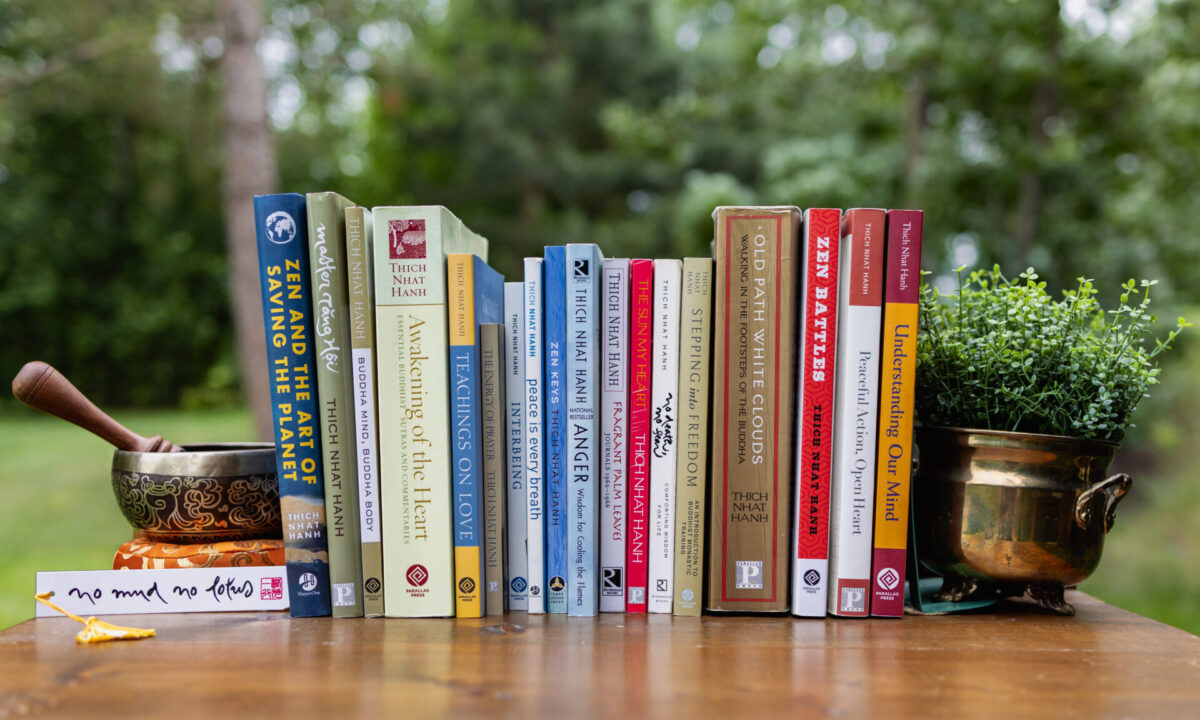
After three years of inaction, at age twenty-eight I still had my doubts that a villain could become a hero. After all, my hero was Jesus, and I was told he was flawless from birth. Nevertheless, I had a lot to lose. My ambition to become a peacemaker like Jesus had never left my mind, but now my relationship with my partner depended on a cold glass of beer never touching my lips again. With such powerful motivation in mind, I came up with the most effective game plan I could think of.
Instead of getting my dopamine highs from another Friday night on the town, they would come from CrossFit, a sport that involves fast-paced exercise and is known for its intense post-workout euphoria. Rather than slamming beers, I would slam books. My intention was to read every book Thích Nhất Hạnh wrote (more than a hundred) to keep my mind occupied during the evenings when, historically, I’d be found slinking from pub to pub on the downtown strip. Why Thích Nhất Hạnh books? My meditation teacher suggested that I let go of my preconceived notions about Buddhism and give them a try. Plus, the shelves of my local used bookstore were filled with his—floor to ceiling!
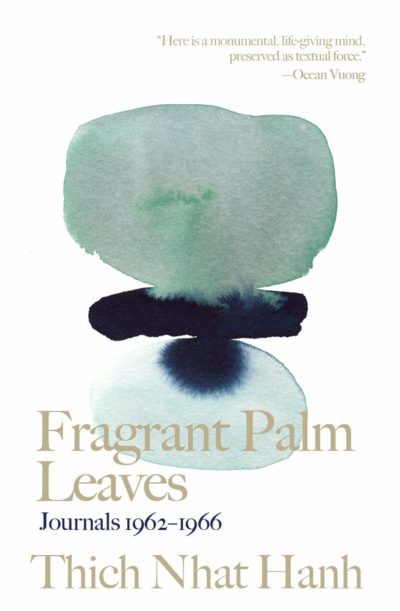
The first book I plucked from the shelf was Fragrant Palm Leaves, a collection of Thích Nhất Hạnh’s journals from 1962 to 1966. His stories about the small hermitage he and several other monastics built in the Vietnamese jungle captivated me. The vivid and poetic style of his writing invigorated my imagination, and I dreamed that one day I might be a peace activist like him. However, the stark contrast between his world and mine left me overwhelmed by intense feelings of FOMO. Like with Jesus, I couldn’t relate to Thích Nhất Hạnh and his blessed, seemingly perfect life. Still, I gained deep respect for the man, and a bond developed between us. Like pints of beer at the bar, as soon as I finished one book, the next one was waiting for me on the table.
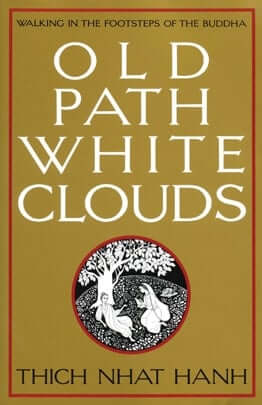
In Old Path, White Clouds, a thick book about the Buddha’s life, I came across the story of Aṅgulimāla, a murderer who wore the fingers of his victims around his neck. Following a meeting with the Buddha, he became a monk and gave up violence for good. Even after Angulimala became enlightened, people threw sticks and rocks at him due to his careless past. The Buddha explained to Aṅgulimāla that it’s not possible to erase what you have done, but you can live with peace and dignity for the rest of your life. As a result of this story, I was able to break my pattern of repeated shameful thinking. I accepted that there are people alive in the world who don’t like me and who may one day throw sticks and stones at me. The Buddha taught me that each of us always has the option to stop, change course, and continue beautifully into the future, no matter what we have done in our past.
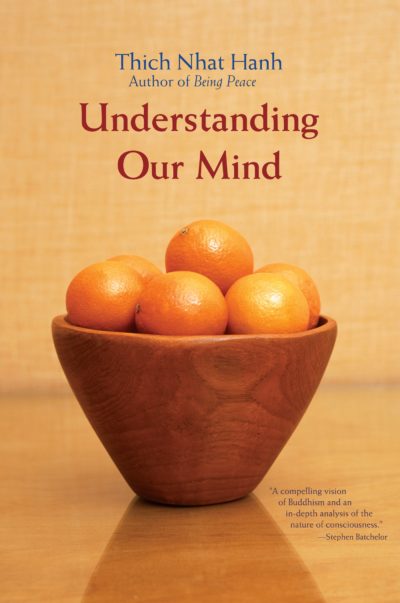
My next discovery was Understanding Our Mind: 50 Verses on Buddhist Psychology. I learned that every human being contains seeds of violence and seeds of peace. The more we water our seeds of violence, the more suffering we will cause in the world. In order to become a peaceful presence, we must stop watering violent seeds and only water peaceful ones. On any given day, each of us has the capacity to manifest villainous or heroic actions. To become a hero, I had to starve the bad seeds and feed the good ones. Using this wisdom, I recognized that the negative seeds planted in my youth were watered more than they should have been. By knowing this, I was able to give myself grace while I worked on becoming a better gardener of my mind.
After a year of sobriety, I finished one of my Thích Nhất Hạnh books and didn’t pick up another for several months. Then in January 2022, a week after my thirtieth birthday, I saw the news of Thích Nhất Hạnh’s death appear on my iPhone. This announcement inspired me to continue the relationship I’d started with him more than a year ago. This time around I became intrigued by the concept of Sangha, or the Buddhist community, which he repeatedly referred to in his books. On a whim, I took a week off work and flew to California to visit one of Thích Nhất Hạnh’s practice centers: Deer Park Monastery in the Great Hidden Mountain, which was so hidden that the first taxi I hired failed to find it!
During the retreat, a monk informed me that the next day marked one hundred days after Thích Nhất Hạnh’s death. This meant his ashes would be ceremonially scattered across the desert, just like the Buddha’s ashes over two thousand years ago in India. Being a part of this historic day and witnessing monks and nuns spreading Thích Nhất Hạnh’s ashes was beyond any reality I could have imagined. I was even more shocked when I learned that everyone in attendance would receive a handful of his ashes to spread themselves across this sacred patch of our planet.
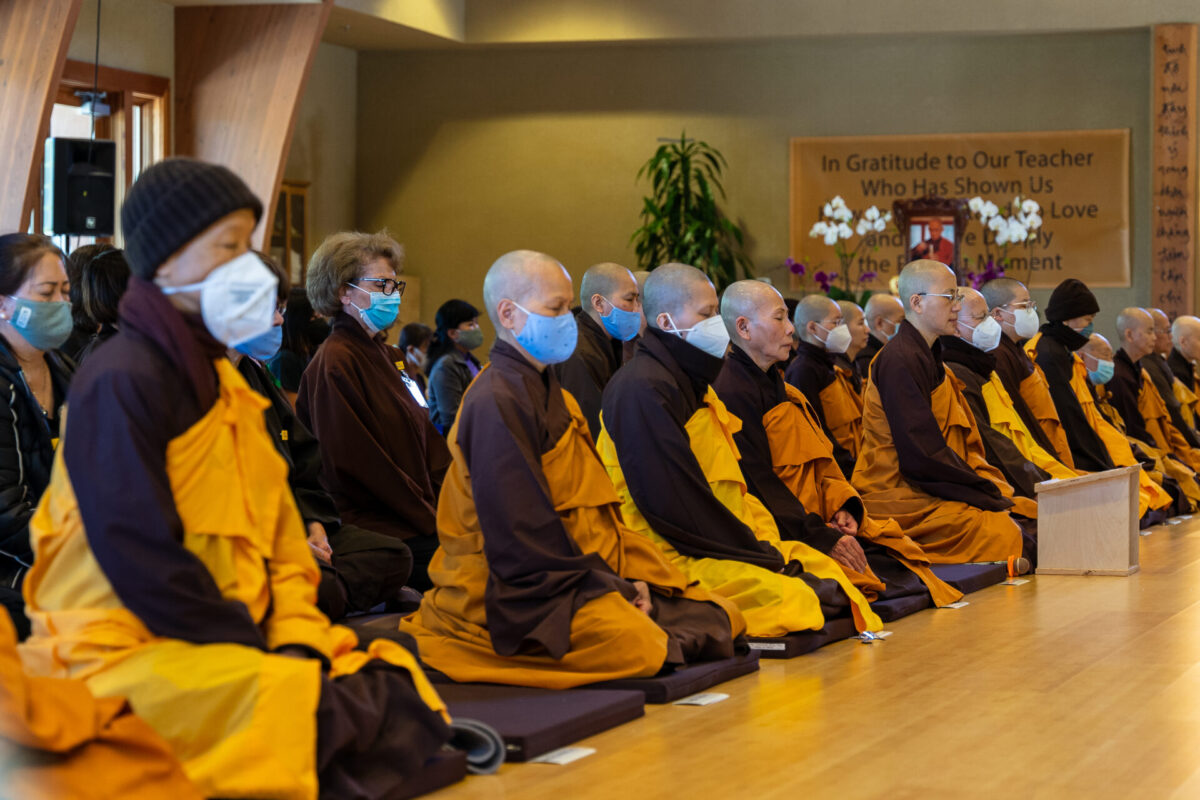
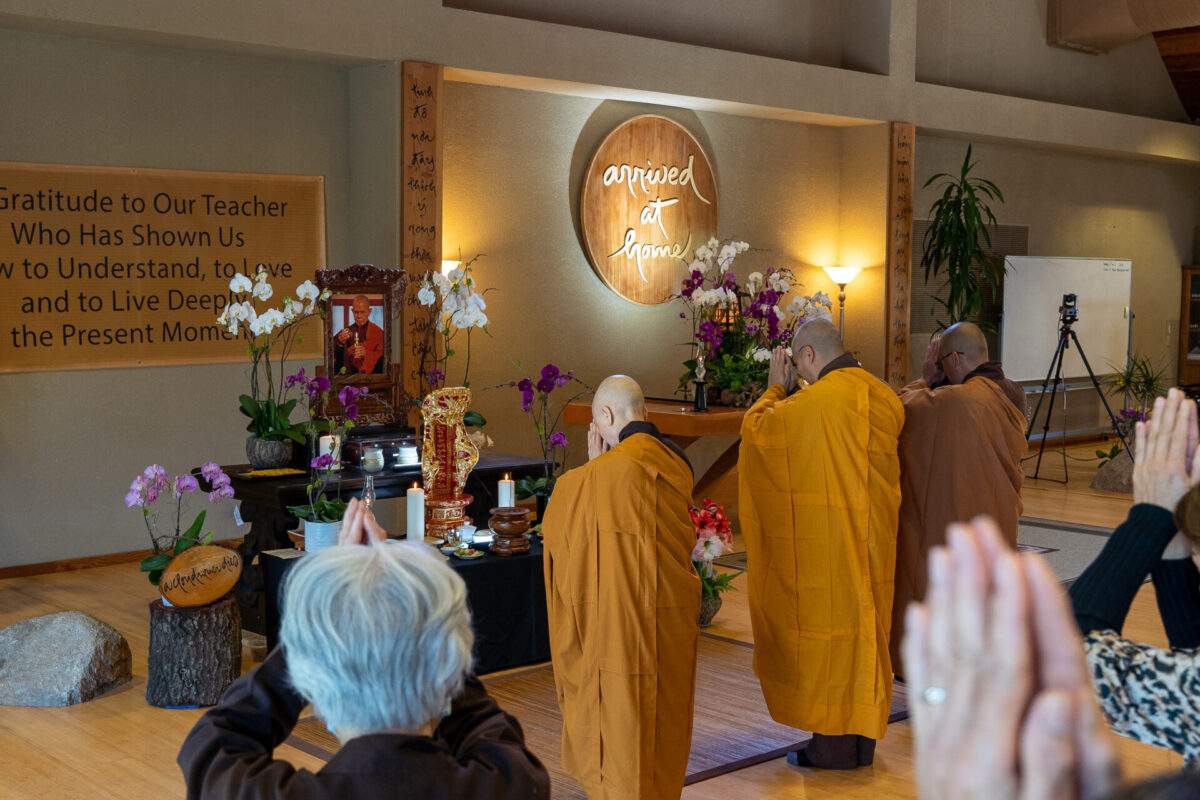
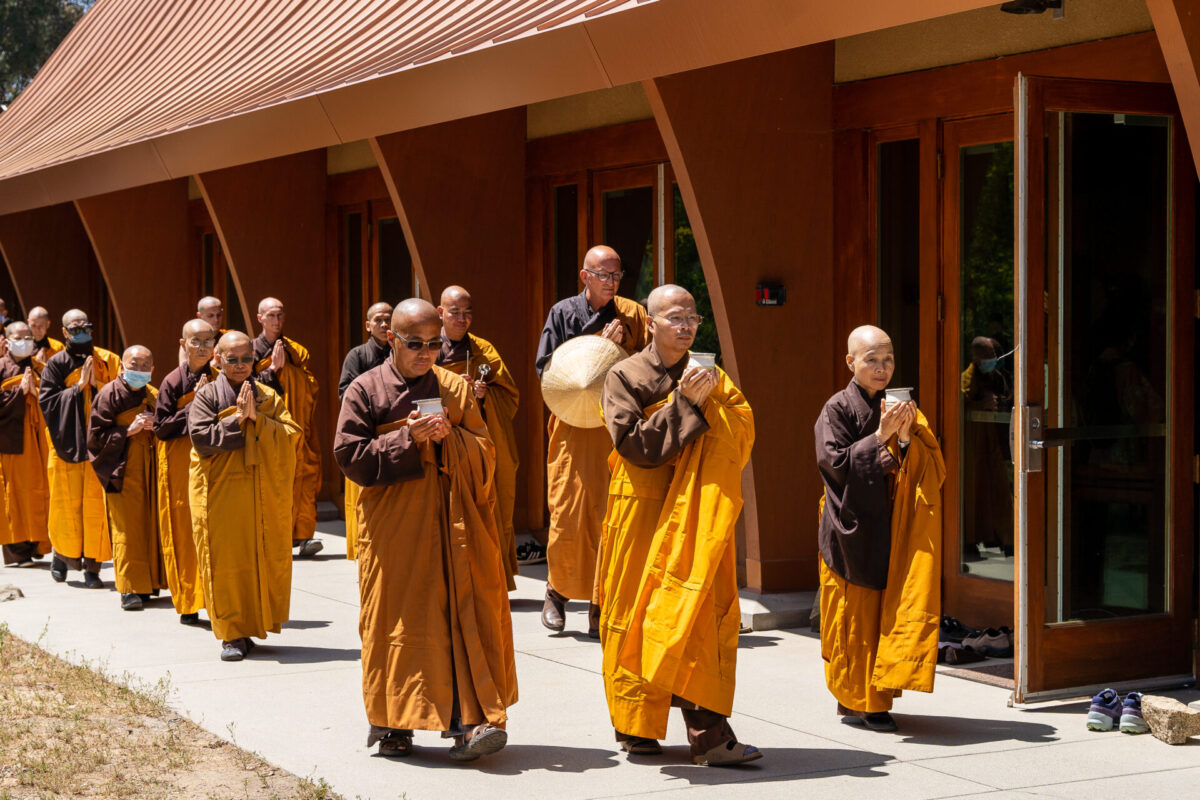
Following the ceremony in the meditation hall, the three hundred people in attendance walked to the top of a nearby hill where the big white Buddha statue watches over the valley. As part of that human procession, I had never felt so alive, connected, and inspired. Marching forward, I felt the electricity connecting us and making us one unwavering current despite the space between us. Whimpers and sobs filled the air, but somehow joy was present, too. The elders stopped in front of the white Buddha statue and dispersed their friend’s bodily remains one spoonful at a time. Monastics wearing yellow and brown robes dotted the hillside as they knelt down to spread the physical remnants of their teacher at the roots of trees. A spoonful of ashes was then presented to me. I wandered further up the dusty hill that overlooked the valley, the cactuses, the horned lizards, and the coyote tracks. With my idol’s ashes in my hands, I kneeled down and spread him over a yellow, water-starved weed. Tears streaming down my cheeks, I thought of how without Thích Nhất Hạnh I would still be drinking away my life; forgiveness would be just a dream.
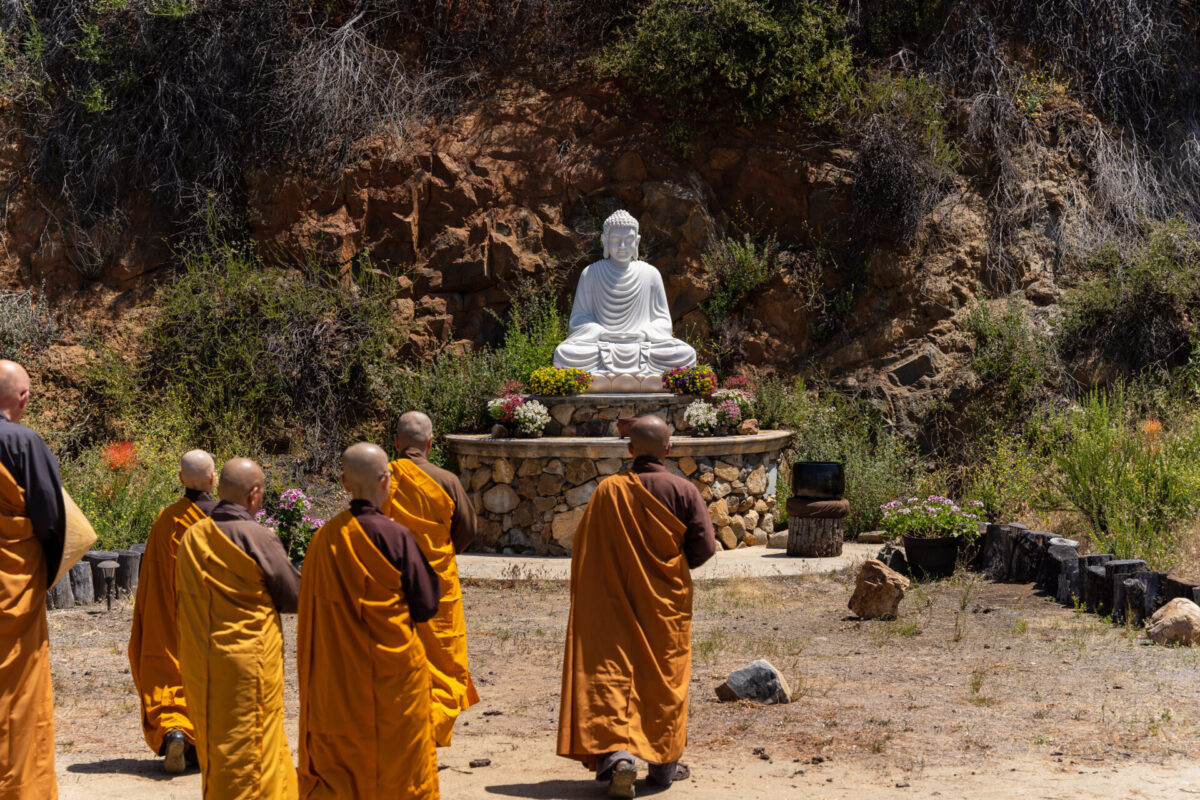
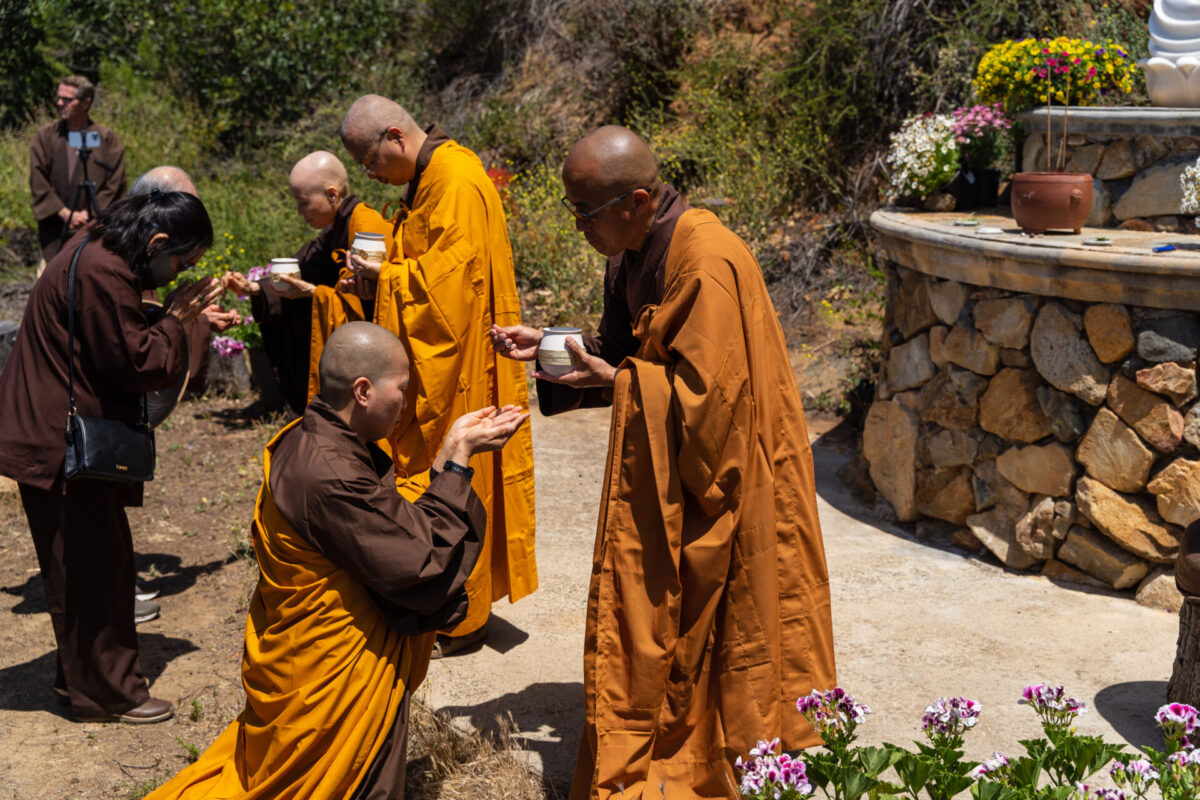
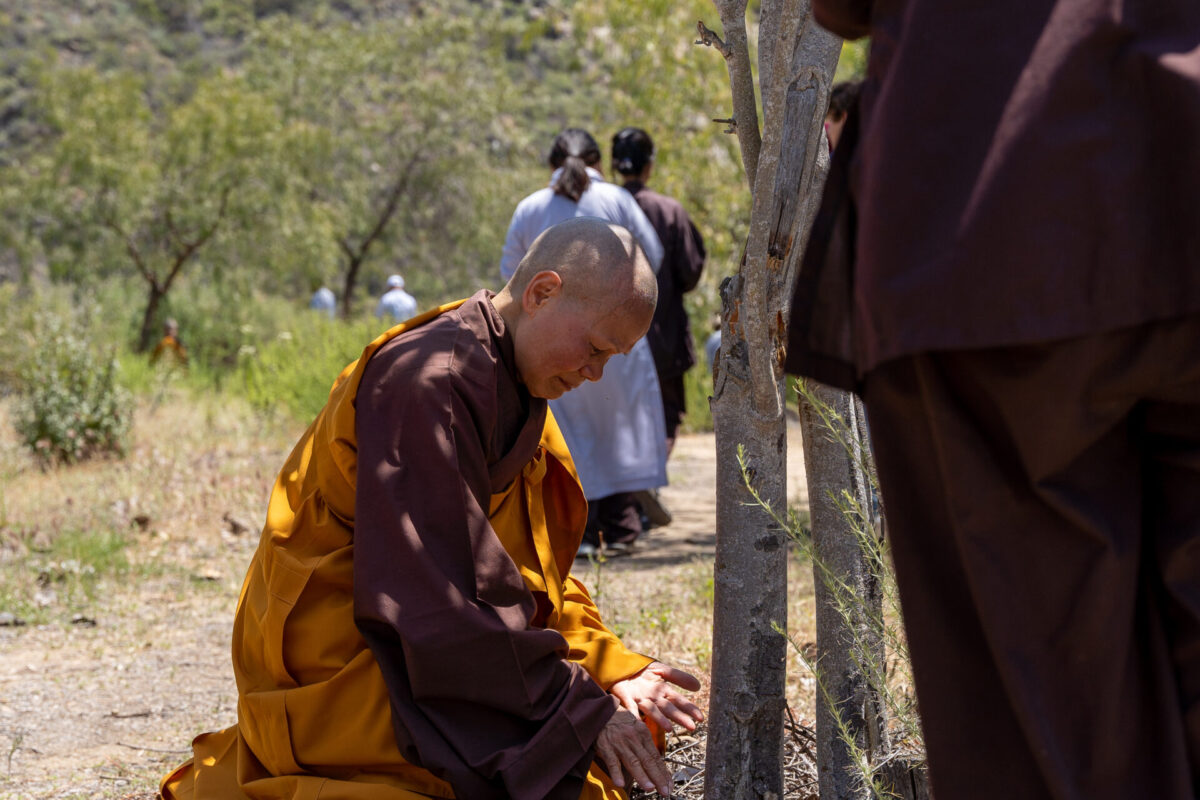
It’s been nearly three years since I started my journey to forgiveness with Thích Nhất Hạnh, but it feels like it’s been ten. I now know that villains and heroes only exist in comic books, and that all human beings are capable of harming and loving. It’s not easy to chart a new course in life, but it’s possible when you have the right role models to look up to. Although I’ll never be perfect, the lessons Thích Nhất Hạnh taught me transformed me into the peacemaker I always wanted to be.
